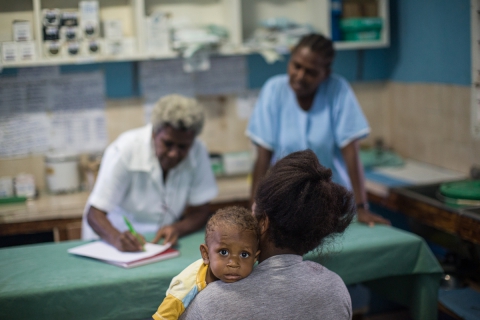Nurses and healthcare workers speak out against the Trans-Pacific Partnership (TPP)

In an open letter to trade ministers and government leaders, 17 nurses' organisations say TPP poses too great a threat to healthcare for them to remain silent.
“The principles of universal healthcare are based on equitable access to affordable healthcare” says Rosa Pavanelli, General Secretary of Public Services International (PSI). “The TPP undermines those principles. Nurses, midwives and health workers know what happens when profit is put before people in the health system.”
“In an age where governments around the world are commenting about the increasing costs of healthcare, their trade ministers are negotiating a deal that will see the cost of healthcare rise purely to the benefit of multinational companies’ profit margins”.
The letter says that the TPP will see the cost of medicines rise as access to generic medicines is delayed and pharmaceutical manufacturers are given unprecedented access to government decision-making bodies. The inclusion of Investor State Dispute Settlement (ISDS) processes will prevent governments from making the kind of policy jumps that save lives.
The letter also raises concerns about a range of harmful effects such as limits on governments’ ability to regulate healthcare providers, restrictions on adequate food labelling that enable people to understand what they are eating and opening the way for more influence of private healthcare multinationals to have greater influence on health care policy.
“With the USA Fast Track legislation debate highlighting the mainstream anger in the USA and around the world, healthcare workers are desperately concerned that people’s health is being pushed aside in the interests of profit and wider geopolitical manoeuvring”, said Ms Pavanelli.
“The secrecy of this deal is hiding the true impacts. This is why we call for a halt to negotiations, for the text to be released and to allow qualified healthcare academics to make open assessments of the impact. Healthcare decisions belong out in the open within our democratic structures, not to be traded as if it is a shipment of wheat”.
An Australian based academic review found multiple concerns about the impact of the TPP. This was based on the available knowledge of the TPP through leaks. Assurances from trade ministers that the TPP poses no risk to healthcare needs to be evidenced based, not based on blind trust.
For more information:
- See the open letter to trade ministers and government leaders
- Australian Health Impact Assessment of the Proposed Trans-Pacific Partnership Agreement
- See PSI's work on Trade agreements, TiSA and TPP
- Download a PDF of the Press Release in English - Français - Español - 日本語

